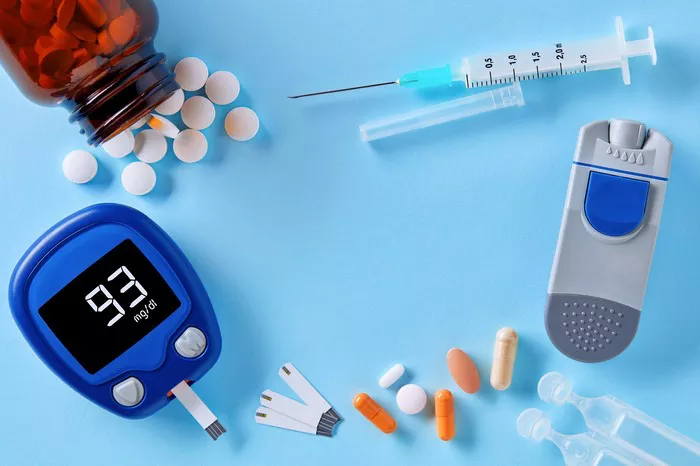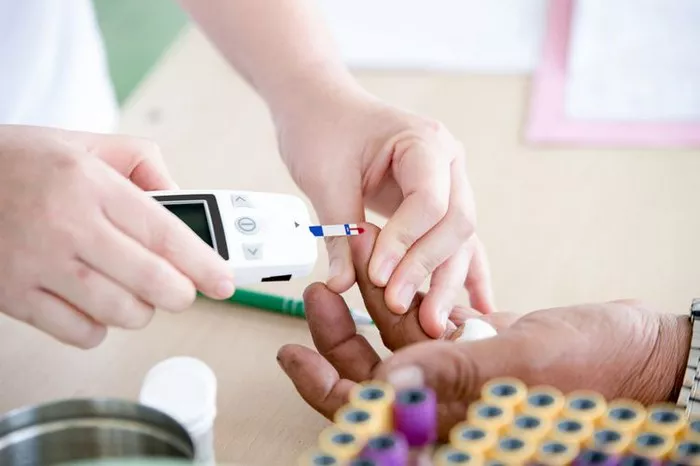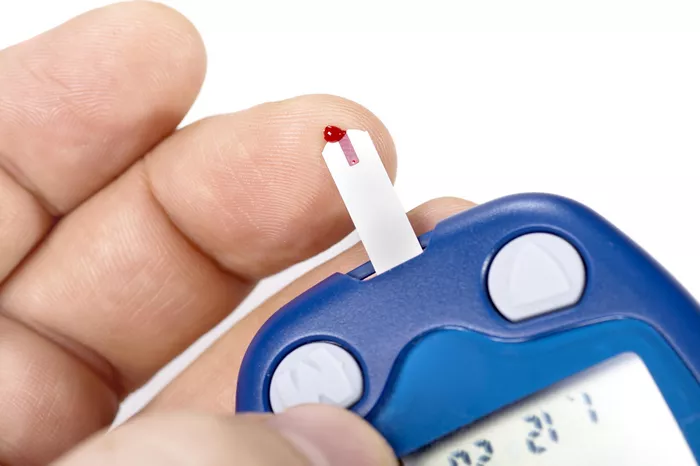Insulin and glucose are two crucial components of the body’s intricate metabolic system, playing complementary yet distinct roles in regulating blood sugar levels and fueling cellular energy production. In this comprehensive article, we will explore the fundamental differences between insulin and glucose, delve into their physiological functions, and discuss the implications of their interactions for overall health and well-being.
Understanding Insulin and Glucose
1. Insulin: Insulin is a peptide hormone produced by the beta cells of the pancreatic islets of Langerhans. Its primary function is to regulate blood sugar levels by facilitating the uptake of glucose into cells and promoting its storage as glycogen in the liver and muscles. Insulin also inhibits glucose production in the liver and regulates lipid metabolism, making it essential for maintaining metabolic homeostasis.
2. Glucose: Glucose is a simple sugar and the primary source of energy for the body’s cells. It is derived from the breakdown of carbohydrates in the diet and serves as a critical fuel for cellular metabolism. Glucose is transported in the bloodstream and taken up by cells throughout the body, where it undergoes glycolysis to produce adenosine triphosphate (ATP), the energy currency of the cell.
Key Differences Between Insulin and Glucose
1. Chemical Composition: Insulin is a peptide hormone composed of two polypeptide chains linked by disulfide bonds. It is produced by the pancreas in response to elevated blood sugar levels and acts as a key regulator of glucose metabolism. In contrast, glucose is a simple sugar with the molecular formula C6H12O6. It is a monosaccharide that serves as the primary source of energy for cellular processes.
2. Source of Production: Insulin is produced by the beta cells of the pancreatic islets of Langerhans in response to elevated blood glucose levels. It is released into the bloodstream and acts on target tissues, such as skeletal muscle, adipose tissue, and the liver, to facilitate glucose uptake and utilization. Glucose, on the other hand, is derived from the digestion and breakdown of carbohydrates in the diet. It is absorbed into the bloodstream from the intestines and transported to cells throughout the body for energy production.
3. Physiological Function: Insulin plays a crucial role in regulating blood sugar levels by promoting the uptake of glucose into cells and inhibiting glucose production in the liver. It also stimulates glycogen synthesis and inhibits lipolysis, the breakdown of stored fat into fatty acids and glycerol. In contrast, glucose serves as the primary source of energy for cellular metabolism. It is oxidized through glycolysis and the citric acid cycle to produce ATP, which powers cellular processes such as muscle contraction, nerve transmission, and biosynthesis.
4. Metabolic Regulation: Insulin acts as a key regulator of glucose metabolism, helping to maintain blood sugar levels within a narrow range (approximately 70-120 mg/dL) under normal physiological conditions. It promotes glucose uptake into insulin-sensitive tissues, such as skeletal muscle and adipose tissue, thereby lowering blood sugar levels. In conditions of insulin resistance or deficiency, such as type 2 diabetes or type 1 diabetes, respectively, blood sugar levels may become elevated, leading to hyperglycemia. Glucose, on the other hand, is regulated by a complex interplay of hormonal and metabolic pathways, including insulin secretion, glucagon secretion, and hepatic glucose production. It is tightly controlled to ensure a constant supply of energy to cells throughout the body.
5. Role in Disease: Dysregulation of insulin and glucose metabolism can lead to the development of various metabolic disorders, including diabetes mellitus, obesity, and metabolic syndrome. In type 1 diabetes, autoimmune destruction of pancreatic beta cells results in insulin deficiency, leading to hyperglycemia and metabolic imbalances. In type 2 diabetes, insulin resistance and relative insulin deficiency impair glucose uptake and utilization, contributing to elevated blood sugar levels. Both conditions require careful management to prevent complications such as cardiovascular disease, neuropathy, nephropathy, and retinopathy.
Interactions Between Insulin and Glucose
1. Insulin-Mediated Glucose Uptake: Insulin facilitates the uptake of glucose into cells by promoting the translocation of glucose transporter proteins (GLUT4) to the cell membrane. This process occurs primarily in insulin-sensitive tissues, such as skeletal muscle, adipose tissue, and the liver. By increasing the expression and activity of GLUT4 transporters, insulin enhances the uptake of glucose into cells, thereby lowering blood sugar levels.
2. Insulin-Mediated Glycogen Synthesis: Insulin stimulates glycogen synthesis in the liver and skeletal muscle by activating key enzymes involved in glycogen formation, such as glycogen synthase. This promotes the storage of glucose in the form of glycogen, which serves as a readily available source of energy during periods of fasting or increased energy expenditure. By promoting glycogen synthesis, insulin helps to maintain blood sugar levels within a narrow range and prevent hypoglycemia.
3. Insulin-Mediated Lipid Metabolism: Insulin plays a crucial role in regulating lipid metabolism by promoting lipid synthesis in the liver and adipose tissue and inhibiting lipolysis, the breakdown of stored fat into fatty acids and glycerol. By suppressing lipolysis and promoting lipid storage, insulin helps to reduce circulating levels of free fatty acids and triglycerides, which can contribute to insulin resistance and cardiovascular disease.
Implications for Health and Disease
Understanding the intricate interplay between insulin and glucose is essential for maintaining metabolic homeostasis and preventing metabolic disorders such as diabetes mellitus and obesity. Dysregulation of insulin and glucose metabolism can have profound implications for overall health and well-being, leading to complications such as cardiovascular disease, neuropathy, nephropathy, and retinopathy. By promoting healthy lifestyle habits, including a balanced diet, regular exercise, and weight management, individuals can help optimize insulin sensitivity and glucose metabolism, reducing the risk of metabolic disease and improving long-term health outcomes.
Conclusion
Insulin and glucose are two essential components of the body’s metabolic system, playing complementary yet distinct roles in regulating blood sugar levels and fueling cellular energy production. Insulin acts as a key regulator of glucose metabolism, promoting the uptake of glucose into cells and facilitating its storage as glycogen. Glucose serves as the primary source of energy for cellular processes, providing fuel for muscle contraction, nerve transmission, and biosynthesis. By understanding the differences between insulin and glucose and their interactions in the body, individuals can take proactive steps to optimize their metabolic health and reduce the risk of metabolic disorders such as diabetes mellitus and obesity. Through a balanced diet, regular exercise, and healthy lifestyle habits, individuals can help maintain metabolic homeostasis and promote overall health and well-being.



























